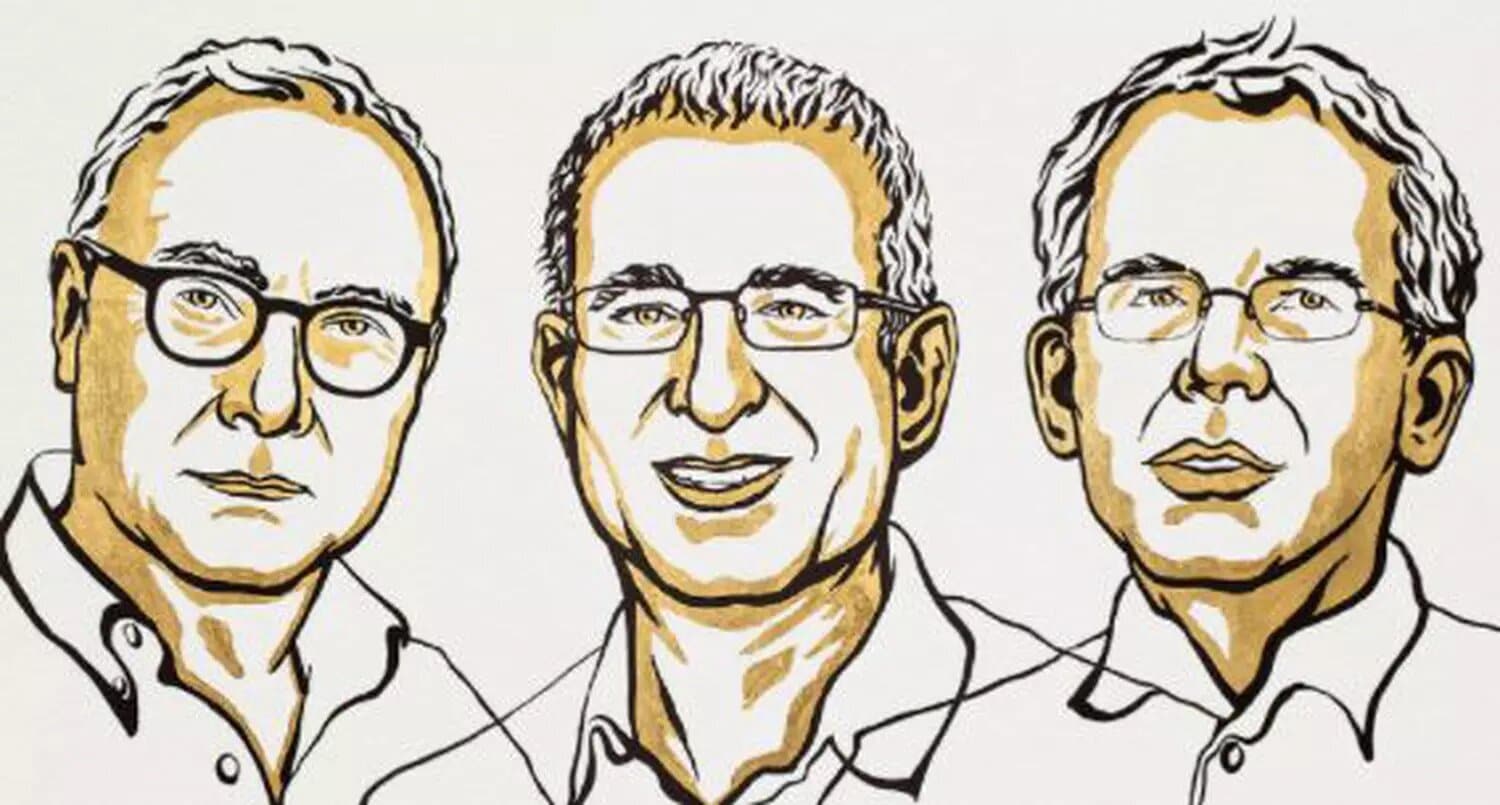Economists David Card, Joshua Angrist and Guido Imbens won the 2021 Nobel Prize in Economics on Monday for pioneering ‘natural experiments’ to show the real economic impacts of certain political and societal decisions. The award symbolises the victory of experimentation over theory.
David Card, Joshua Angrist and Guido Imbens are three economists, who specialise in what is known as experimental economics, which is characterised by experiments carried out naturally, even almost involuntarily. In this sense, they differ from experiments carried out in laboratories, in controlled environments, and subject to a strict protocol. Experimental economics thus takes advantage of political or economic events that affect a random part of the population. This approach has been extended to other social sciences.
"I was kinda hoping I might go to sleep!"
2021 laureate David Card had just arrived home after a long flight when he received the news about his prize in economic sciences. When we spoke to him he was about to go to sleep – this news might have interfered with that plan. pic.twitter.com/fDHHnhMp2m
— The Nobel Prize (@NobelPrize) October 11, 2021
The victory of these three laureates marks once again the predominance of American institutions in the Nobel Prizes in Economics. David Card was born in Canada, but now works at the University of California at Berkeley. Joshua Angrist has dual American and Israeli citizenship and works at the Massachusetts Institute of Technology, while Guido Imbens is Dutch-American. He works at Stanford University.
The 2021 Nobel Prize in Economics recognises the work of the three economists in this field, which, according to Peter Fredriksson, chairman of the economics prize committee, “has significantly improved our ability to answer key causal questions, which has benefited society“.
"Many people believe that highly selective universities are the key to a successful career… that's often illusory."
Listen to our exclusive telephone interview with 2021 economic sciences laureate Joshua Angrist.#NobelPrize pic.twitter.com/pnaAmR3o77
— The Nobel Prize (@NobelPrize) October 11, 2021
The laureates’ experiments are not recent, but their results still have consequences today. David Card, for example, studied the impact of a minimum wage increase on the fast-food industry in New Jersey in the early 1990s, a study which, even then, overturned the conventional economic wisdom that such increases should always result in job losses. This experiment was used as empirical evidence to lobby for legislation for a $15 minimum wage in the US.
Joshua Angrist and Guido Imbens were awarded for their methodological contributions to the analysis of cause and effect in experimental economics.
The awarding of the Nobel Prize to these three laureates is not only a reward for their years of work and research. On the contrary, it should be seen in a broader context, because by awarding these three economists, the Nobel Prize Committee is sending a message. Experimental economics is now considered on the same level as theory, and even more so, because it allows us to put to rest certain smoky and persistent preconceived ideas, as was the case with David Card‘s research, which showed that the idea that the minimum wage was harmful to employment was false.
Read Also > [LUXUS+ MAGAZINE] A YACHT TOUR IN COSTA RICA
Featured Photo : The Nobel Prize – Twitter















